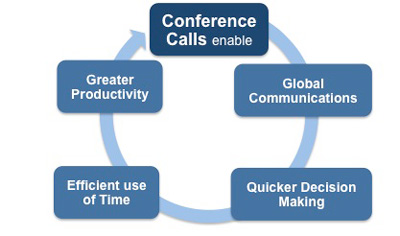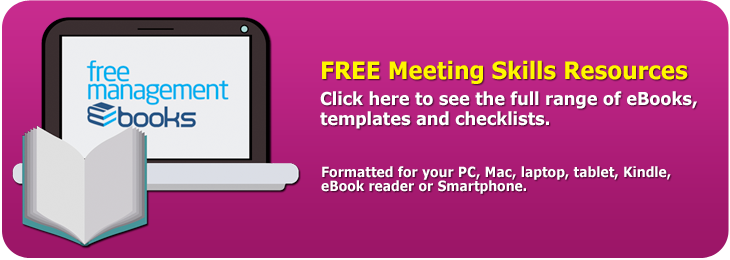Conference Calls
Globalization is now a common feature of most organizations. Just as institutions have adapted to fit this new world, so has the behavior of those working within them. Many a manager's working day starts well before they get into the office. You could be speaking to your Australian colleagues at 6am and then updating your Middle East co-workers at 11pm at the start of their working day.
Technology has erased the traditional problem of communicating with colleagues and customers in different time zones. You can now be contactable anywhere, rather than having to be at head office in the special conference suite.
You can talk to your colleagues in Dubai on Sunday, the start of their working week, ensuring that they are working effectively every day of the week. Discussions via conference calls enable real time decisions to be made regardless of the country that each decision maker is in.
 |
Through the use of Conference Calls organizations have been able to short-circuit decision-making and reduce the non-productive traveling time and costs that it previously experienced. These benefits have also been passed onto other organizations such as those of your customers, suppliers and partners, reducing everyone's costs.
As a manager you need to ensure that this ability to communicate is efficiently used by you and your colleagues and empowers people when performing their roles. You need to encourage proper use of this 'tool' so that it improves productivity and does not become just another type of unstructured and unproductive meeting.
Conference calls play a major role in an organization's communications, both internal and external. Technological advances have meant that at a national event, for example, the poor behavior of an organization's senior officials immediately becomes international news. This means that all those in senior positions must have a much greater access to information as well as a better understanding of it in order to make sound business decisions.
Conference calls have enabled this to occur as it provides an effective and speedy method of communication. The most typical uses are:
• Progress meetings
• Project updates
• Gaining approval for decisions
• Strategy reviews
• Training
• Internal communications
Whilst conference calls have undoubtedly brought substantial benefits to organizations by making personnel more productive and saving considerable sums previously spent on travel, they are not perfect. This means that you:
• Have difficulty in controlling such interruptions.
• Have a greatly impaired ability to ring-fence your time so that you can work undisturbed for a period of time.
• Are unable to adequately protect your Work-Life balance.
• May have acquired 'poor' working habits* when taking part in conference calls.
* For example, reading emails, opening post or browsing the web and therefore not giving the call your full attention.
You may also be interested in:An Introduction to Conference Calls, Types of Conference Call, Technical Issues Affecting Conference Calls, Human Factor Issues, Maintaining Your Productivity, Adapting Your Communication Style, Advance Planning, Controlling the Call and Conference Call Etiquette.



